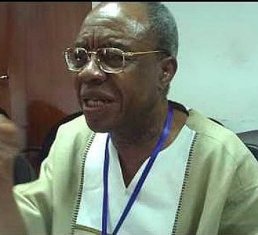
About 1.3 per cent of Ghana’s GDP, translating into over GHS1bn, was paid to non-existent public sector employees or ghost workers, in 2013, according to analysis done by Dr Joe Abbey, Executive Director of economic think tank Centre for Policy Analysis (CEPA).
Dr Abbey said an average of GHS100m was paid to ghost employees every month in 2012. He told XYZ News in an interview that the centre made the estimates following a careful study and analysis of the 2013 budget presented to Parliament on Tuesday March 5, 2013.
“The question about ghost or ineligible workers dealt a decisive blow… our estimate was that as much as 1.3 percentage points of our GDP was being lost to these ghost payments and so a billion cedis was the estimate that we saw, like 100 million a month," Dr Abbey noted.
The 2013 budget reported a deficit of 12 percent of GDP.
The public wage bill for 2012 ballooned to 72.3 percent of tax revenue as a result of the implementation of the single spine salary (SSS) structure. It had earlier been estimated at 60.9 percent by the President in November 2012 in the State of the Nation address.
The wage bill constituted 2.7 percent of GDP of the 12.0 Deficit. It translated into 1.91 billion Ghana cedis. The Government has targeted a nine percent deficit for the year 2013.
A group called the Young Economic Dialogue has described the 2013 deficit target as unimpressive. Dr Abbey told XYZ News the government of Ghana must fight the ghost employees’ phenomenon with all the vigour it can muster.
“This ghost issue should be laid to rest and it should be presented in a slightly more serious way. We find that some people are fraudulently raiding our national coffers and paying people who are either ineligible or illegal.
"That behaviour is not tolerable at a time when there is so much suffering from unemployment and feeling of increasing poverty,” he said.